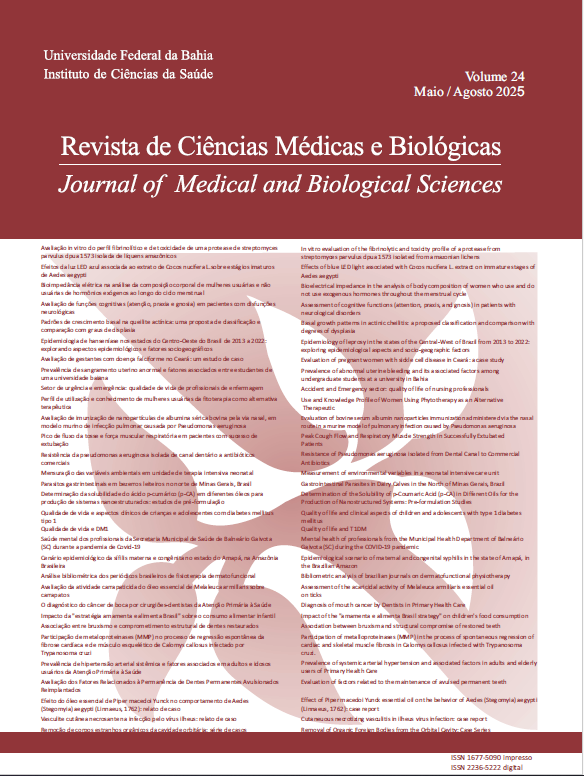Cenário epidemiológico da sífilis materna e congênita no Estado do Amapá, Amazônia Brasileira
DOI:
https://doi.org/10.9771/cmbio.v24i2.62090Palabras clave:
sífilis, sífilis congênita, epidemiologia, amapáResumen
Objetivo: Caracterizar o cenário epidemiológico da sífilis materna e congênita no Estado do Amapá, no período de 2018 a 2023. Métodos: Estudo epidemiológico, descritivo e retrospectivo, com abordagem quantitativa, realizado em Macapá/AP, com base nos casos notificados e armazenados no banco de dados do Núcleo de Epidemiologia Hospitalar, do Hospital Maternidade Mãe Luzia. Foram incluídas as variáveis com base nas fichas de notificação compulsória. Resultados: Entre os anos de 2018-2023, um total de 1.397 casos de sífilis materna foi contabilizado e 393 de sífilis congênita. Teve-se maior prevalência nas gestantes com idade entre 21-30 anos, pardas e ensino fundamental e médio incompleto. A maioria das gestantes realizaram o pré-natal, tiveram sorologia treponêmica e não traponêmica reagente, receberam o diagnóstico de sífilis no pré-natal, tiveram tratamento inadequado ou não realizado e não trataram o parceiro. Entre os recém-nascidos a maioria (n= 346; 88%), foram diagnosticados em até 7 dias, (n=381; 97%) tinham exames de sangue perférico reagente, (n=322; 82%) utilizaram Penicilina (n= 360; 92%) estavam vivos, (n= 9; 2%) tiveram óbito pela doença. Conclusão: A prevalência da sífilis materna e congênita pode ser um indicador de fragilidades no pré-natal, sendo necessária a implantação de novas medidas para reduzir os casos.
Descargas
Descargas
Publicado
Cómo citar
Número
Sección
Licencia
Derechos de autor 2025 Revista de Ciências Médicas e Biológicas

Esta obra está bajo una licencia internacional Creative Commons Atribución 4.0.
A Revista de Ciências Médicas e Biológicas reserva-se todos os direitos autorais dos trabalhos publicados, inclusive de tradução, permitindo, entretanto, a sua posterior reprodução como transcrição, com a devida citação de fonte. O periódico tem acesso livre e gratuito.






